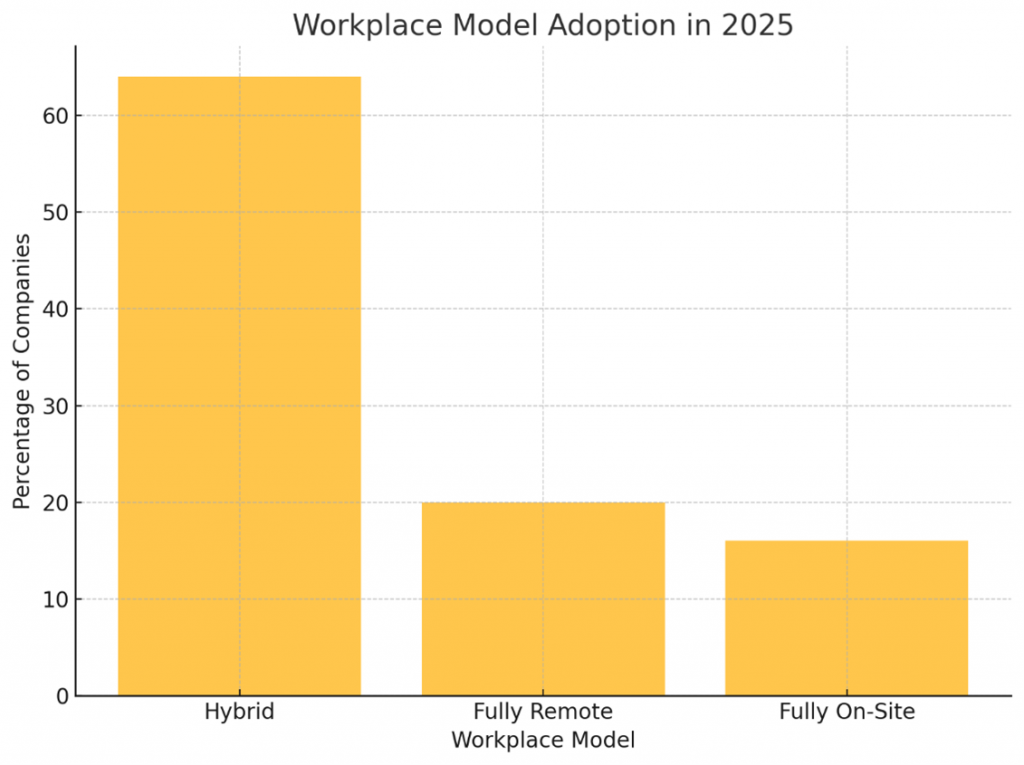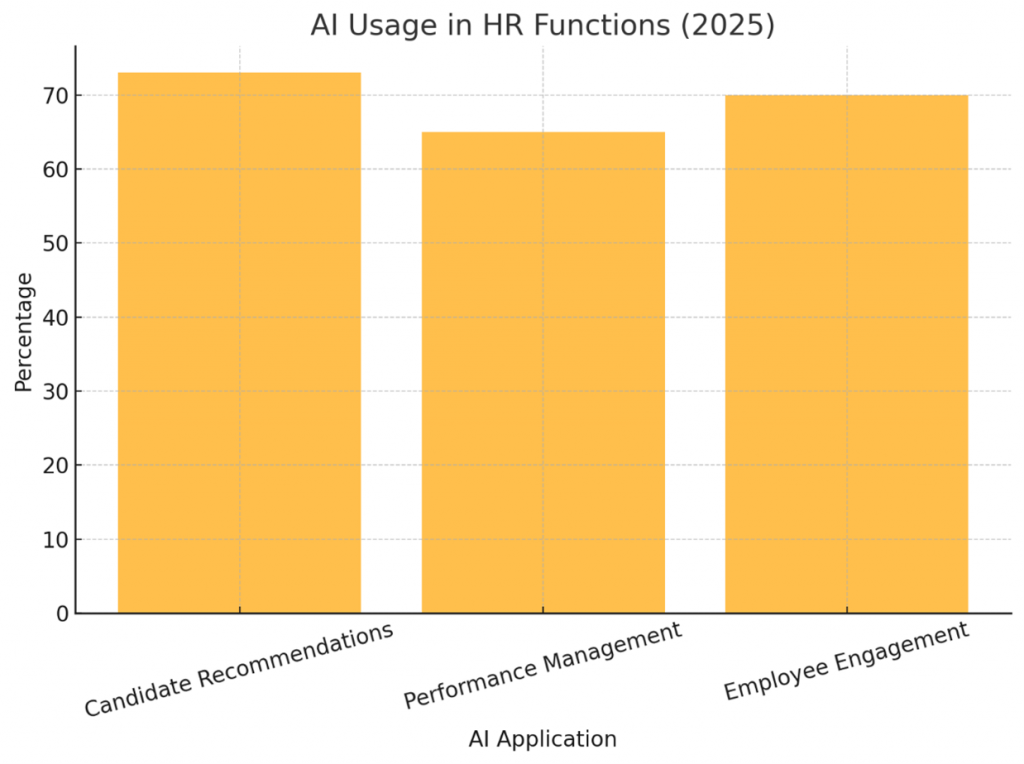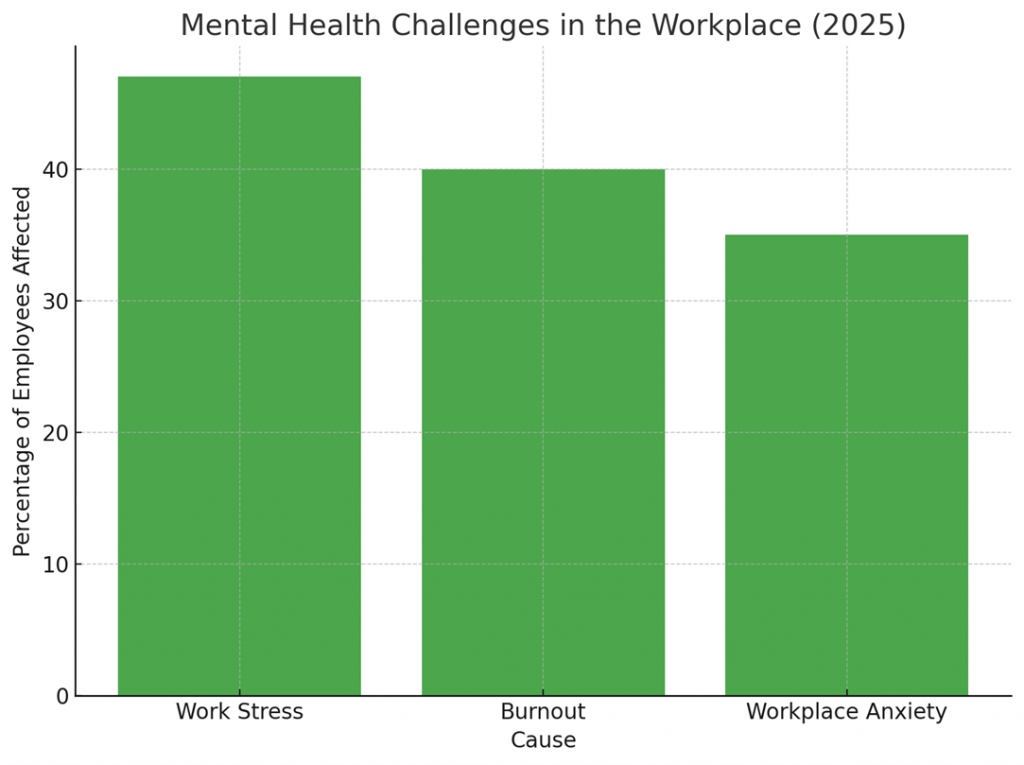Top 3 HR Topics for 2025
Insights from David Sladek, President, Lincoln Search Consultants

As the workplace continues to evolve at an unprecedented pace, HR leaders are tasked with navigating new challenges while fostering an environment that supports growth, productivity, and employee satisfaction. In 2025, three key HR topics are dominating conversations and shaping the future of talent management. Here’s my take on these critical areas and how organizations can tackle them effectively.
1. Embracing the Hybrid Work Model
The hybrid work model has become a cornerstone of modern workplace strategy. Recent data indicates that approximately 64% of leaders report their companies are utilizing a hybrid model, with larger organizations more likely to adopt such arrangements (Archie, 2025). As we refine this model, businesses must address both its opportunities and challenges.
Key challenges:
- Ensuring equity: Remote employees should have the same access to opportunities, mentorship, and resources as their in-office counterparts.
- Maintaining culture: Building and sustaining a cohesive organizational culture across dispersed teams requires deliberate effort.
- Technology overload: Striking a balance between useful tools and overwhelming tech reliance is critical.
Actionable strategies:
Conduct regular feedback sessions to gauge employee preferences and pain points.
- Invest in tools that foster seamless collaboration and communication while emphasizing work-life balance.
- Develop hybrid-specific policies that address performance metrics, meeting etiquette, and employee engagement.

2. The Evolving Role of AI in HR
Artificial intelligence is transforming HR functions, from recruitment to performance management. In 2025, the focus isn’t just on adopting AI but on using it responsibly and effectively. Notably, 73% of HR professionals trust AI for candidate recommendations, and 70% plan to use it within the next year (LifeWire, 2025).
Key concerns:
- Bias in algorithms: Ensuring fairness in AI-driven decision-making processes is paramount.
- Employee apprehension: Transparency about how AI impacts roles and decisions can alleviate fears of job displacement.
- Data security: Safeguarding sensitive employee information remains a top priority.
Actionable strategies:
- Partner with ethical AI vendors and regularly audit systems for bias.
- Train HR teams to blend AI insights with human judgment for more balanced outcomes.
- Implement robust cybersecurity measures to protect employee data.

3. Prioritizing Employee Well-being and Mental Health
The dialogue around mental health has progressed significantly, but 2025 is the year organizations must act decisively to prioritize employee well-being. Burnout, stress, and workplace anxiety are still prevalent, with nearly half (47%) of employees identifying work stress as the primary cause of deteriorating mental health (WellHub, 2025). The World Health Organization (WHO) also estimates that anxiety and depression result in a $1 trillion annual loss in global productivity.
Key challenges:
- Access to resources: Not all employees feel comfortable seeking help, and some may face barriers to accessing mental health support.
- Stigma: Despite growing awareness, stigma around mental health issues persists in many workplaces.
- Integration into policies: Well-being must be embedded in every aspect of the employee lifecycle.
Actionable strategies:
- Offer comprehensive mental health benefits, including access to therapy and wellness programs.
- Create a culture of openness where mental health is treated as a key component of overall performance.
- Provide training for managers to identify and address mental health challenges within their teams.

Moving Forward
As HR professionals, our role in shaping the workplace of 2025 is more critical than ever. By addressing these key topics with intentionality and foresight, organizations can not only overcome challenges but also set the stage for sustained success. The future of work is about balance—between technology and humanity, flexibility and structure, and innovation and tradition.
At Lincoln Search Consultants, we’re committed to partnering with organizations to navigate these changes, ensuring that talent strategies align with business goals. Together, we can build workplaces where people thrive, innovate, and succeed.
Sources Cited:
- Archie. (2025). Hybrid Workplace Trends.
- LifeWire. (2025). AI Comfort in Hiring Process.
- WellHub. (2025). Work-Life Wellness Statistics.
- World Health Organization. Mental Health in the Workplace.
About the Author
David Sladek has over 20 years of extensive experience in staffing and talent acquisition. Since founding Lincoln Search Consultants in 2009, he has overseen all operations of this boutique, full-service staffing firm, specializing in Finance, Accounting, Human Resources, Administrative Support, Supply Chain, and Technology. Beyond his executive leadership, David actively places top talent in direct hire, contract, and contract-to-hire roles, making him a hands-on leader in the talent space.
David has held prominent leadership roles in the staffing industry, where he built and grew Direct Hire practices achieving record-setting results. David managed operations, hiring, and training leading large teams over multiple delivery lines and offices driving exceptional results across including Finance/Accounting, HR, Administrative, and Technology. He has led teams as large as 50+in major markets including Chicago, Milwaukee, Saint Louis and Minneapolis.
Throughout his staffing career David has excelled at production, has trained hundreds of talented and successful recruiters across the country, many who are high-level producers and leaders in some of the largest staffing organizations today.
Follow Lincoln Search Consultants on Linked In
Scan or visit us at www.lincolnsearch.com to learn more about our offerings, team and how we differentiate ourselves from the competition.

Leave a Reply